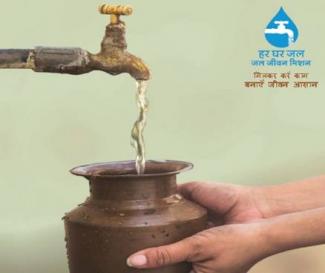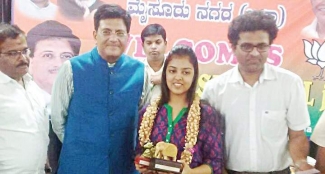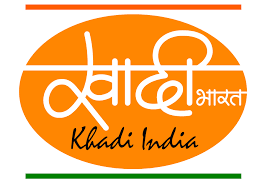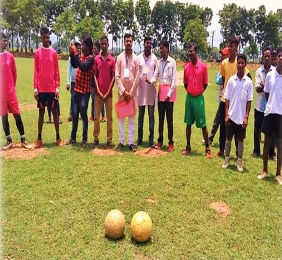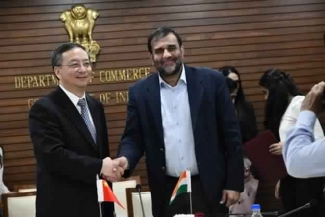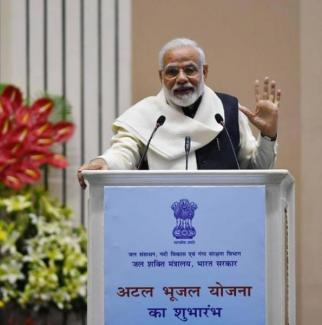
Prime Minister Narendra Modi launched the Atal Bhujal Yojana today in New Delhi.
Speaking on the occasion, PM highlighted that the subject of water was very important to Atal ji and very close to his heart. Our Government is striving to implement his vision. Atal Jal Yojana or the guidelines related to the Jal Jeevan Mission, are big steps in proving the resolve to deliver water to every household in the country by 2024, the PM added. He said that this water crisis is worrying for us as a family, as a citizen and as a country also it affects development. New India has to prepare us to deal with every situation of water crisis. For this, we are working together on five levels.
Prime Minister emphasized that Jal Shakti Ministry freed the water out of Compartmentalized Approach and laid stress on a Comprehensive and Holistic Approach. In this monsoon, we have seen how extensive efforts have been made for water conservation on behalf of the society, from the Jal Shakti Ministry. He said that on one hand, Jal Jeevan Mission, will work towards delivering piped water supply to every house, and on the other hand Atal Jal Yojana, will pay special attention to those areas where groundwater is very low.
To incentivise gram panchayats to perform better in water management, Prime Minister said that a provision has been made in the Atal Jal Yojana, in which better performing gram panchayats, will be given more allocation. He said that in 70 years, only 3 crore out of 18 crore rural households have access to piped water supply. Now our Government has set the target to deliver clean drinking water to 15 crore homes in the next five years through pipes.
Prime Minister emphasized that water-related schemes should be made according to the situation at every village level. This has been taken care while making the guidelines of the Jal Jeevan Mission, he added. He also said that both Union and State Governments will spend Rs 3.5 lakh crore on water related schemes in the next 5 yrs. He requested the people of every village to make a water action plan and create a water fund. Farmers should make a water budget where groundwater is very low.
The Union Cabinet chaired by the Prime Minister Narendra Modi has given its approval for the implementation of the Atal Bhujal Yojana (ATAL JAL), a Central Sector Scheme with a total outlay of Rs.6000 crore to be implemented over a period of 5 years (2020-21 to 2024-25).
The scheme aims to improve ground water management through community participation in identified priority areas in seven States, viz. Gujarat, Haryana, Karnataka, Madhya Pradesh, Maharashtra, Rajasthan and Uttar Pradesh. Implementation of the scheme is expected to benefit nearly 8350 Gram Panchayats in 78 districts in these States. ATAL JAL will promote panchayat led ground water management and behavioural change with primary focus on demand side management
Out of the total outlay of Rs. 6000 crore, 50% shall be in the form of World Bank loan, and be repaid by the Central Government. The remaining 50% shall be through Central Assistance from regular budgetary support. The entire World Bank's loan component and Central Assistance shall be passed on to the States as Grants.
ATAL JAL has two major components:
A. Institutional Strengthening and Capacity Building Component for strengthening institutional arrangements for sustainable ground water management in the States including improving monitoring networks, capacity building, strengthening of Water User Associations, etc.
B. Incentive Component for incentivising the States for achievements in improved groundwater management practices namely, data dissemination, preparation of water security plans, implementation of management interventions through convergence of ongoing schemes, adopting demand side management practices etc.
ATAL JAL will result in:
- Institutional strengthening for improving ground water monitoring networks and capacity building of stakeholders at different levels which will enhance ground water data storage, exchange, analysis and dissemination.
- Improved and realistic water budgeting based on an improved database and preparation of community-led Water Security Plans at Panchayat level
- Implementation of Water Security Plans through convergence of various ongoing/new schemes of the Government of India and State Governments to facilitate judicious and effective utilization of funds for sustainable ground water management.
- Efficient use of available ground water resources with emphasis on demand side measures such as micro-irrigation, crop diversification, electricity feeder separation etc.
Impact:
- Source sustainability for Jal Jeevan Mission in the project area with active participation of local communities.
- Will contribute towards the goal of doubling the farmers' income.
- Will promote participatory ground water management.
- Improved water use efficiency on a mass scale and improved cropping pattern;
- Promotion of efficient and equitable use of ground water resources and behavioural change at the community level;
Background:
Ground water contributes to nearly 65% of total irrigated area of the country and nearly 85% of the rural drinking water supply. The limited ground water resources in the country are under threat due to the increasing demands of growing population, urbanization and industrialization. Intensive, and unregulated ground water pumping in many areas has caused rapid and widespread decline in ground water levels as well as reduction in the sustainability of ground water abstraction structures. The problem of reduction in ground water availability is further compounded by deteriorating ground water quality in some parts of the country. The increasing stress on ground water due to over- exploitation, contamination and associated environmental impacts threaten to endanger the food security of the nation, unless necessary preventive / remedial measures are taken on priority.
The Department of Water Resources, River Development & Ganga Rejuvenation, Ministry of Jal Shakti has taken a pioneering initiative for ensuring long term sustainability of ground water resources in the country through the Atal Bhujal Yojana (ATAL JAL) by adopting a mix of 'top down' and 'bottom up' approaches in identified ground water stressed blocks in seven states, representing a range of geomorphic, climatic and hydrogeologic and cultural settings. ATAL JAL has been designed with the principal objective of strengthening the institutional framework for participatory ground water management and bringing about behavioral changes at the community level for sustainable ground water resource management. The scheme envisages undertaking this through various interventions, including awareness programmes, capacity building, convergence of ongoing/new schemes and improved agricultural practices etc.







